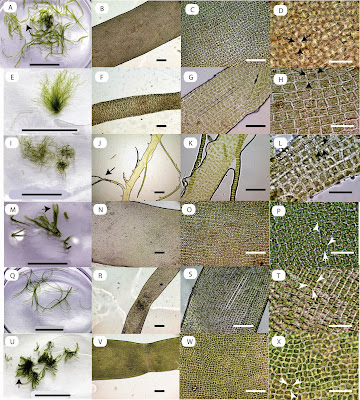Central University Researchers Discover A New Species of Seaweed
Researchers from Centre for Biosciences, Central University
of Punjab, have discovered a new bloom-forming species of a large endemic green
seaweed off the West Coast of India. New species was named as Ulva paschima Bast, specific epithet in Sanskrit means “West”-indicating unique pattern in its distribution. Article, authored by Dr. Felix Bast, an Assistant Professor at Centre for Biosciences and two M.Phil. students working with him, Mr. Aijaz Ahmad John and Mr. Satej Bhushan, have been published in October 2014 issue of PLoS ONE, a major international journal. Researchers collected tubular Ulva species from various locations in West Coast from Goa, Karnataka and Kerala over a stretch of 600 km, and used morphometry and DNA sequence data to compare evolutionary legacy of this seaweed with other seaweeds in the world, and concluded that this is a new species. Bloom-forming algae like this newly discovered species are hot candidates for “Carbon Capture and Sequestration”, as it can capture carbon dioxide from the atmosphere, and therefore reduce global warming. Bloom-forming seaweeds are also important for biofuel production, as these seaweeds can be easily cultivated in Open Ocean (therefore, agricultural land usage are not affected) with no fertilizers or pesticides. Algae fix atmospheric carbon dioxide using seawater and sunlight, a natural process. Based on the importance and potential impact of this study, the journal waived off publication fee, which is around Rs. 31,000. This study was supported by INSPIRE Faculty Award from Department of Science and Technology, Government of India, awarded to Dr. Felix Bast.
This story appeared in The Tribune, Newspaper on 11/11/2014


Comments